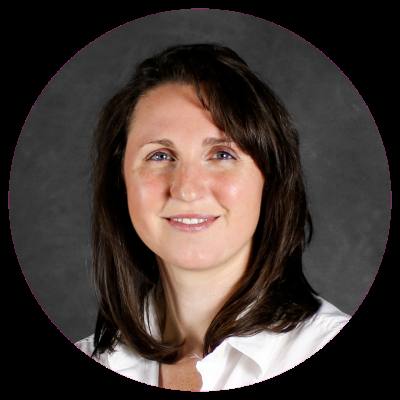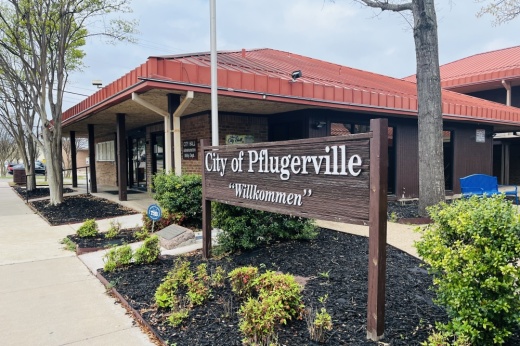These changes are designed to promote mixed-use and high-density developments; however, they have raised concerns among both residents and developers regarding property rights.
The overview
The amendments are intended to align more closely with the goals outlined in the Aspire 2040 Comprehensive Plan adopted in 2022, said Jeremy Frazzell, the director of planning and development services.
The changes will not affect any existing single-family properties, operating businesses or preliminary development plans already submitted to the city for review.
Frazzell said the planning department has, in recent years, discovered a strong community desire for diverse housing options within the city. There was also a notable preference for areas that fostered a "live, work and play" environment.
“These [amendments] are things that were identified as being something that folks wanted,” Frazzell said. “It creates the opportunities for those housing options; it creates opportunities to be able to have an urban type of development that is within the corridor, and it still retains the ability to have flexibility for considering planned unit developments or specific use developments.”
The most notable changes for the estimated 1,000-plus acres of land along the corridor relates to multifamily developments, which are now required to build a commercial or retail space on the first floor. The following restrictions will also be applied:
- Amenity centers do not count as a nonresidential ground floor.
- Call centers are required to construct a parking structure.
- Drive-thrus now require pedestrian-friendly amenities.
- Fueling stations are required to construct electric vehicle charging stations.
- Multifamily developments of eight or more units and three or more stories must construct hidden parking away from the street.
Several members from the community spoke against the motion.
The department of planning and development services received enough signatures via petition that the action required a supermajority vote from City Council, or six out of seven votes, for the motion to pass.
Several speakers, including developers, expressed concerns that the SH 130 and SH 45 corridor was too large of an area to confine to these specific development standards.
A partner and acquisition agent for JW Development, Richard Gary pointed out that in the economic climate, many retail spaces remain vacant and the expenses associated with developing such mixed-use structures are extremely high.
Stuart Shaw, the CEO of Bonner Carrington—a Texas-based multifamily developer—said the city should incentivize these types of projects rather than dictate them.
“Retail doesn't get told where to go. It goes where it wants to go. ... This update is not an opportunity, it's a requirement. No developer believes they are going to come get a special use permit from a council that wants to see those pictures,” Shaw said, referring to renderings shown throughout staff’s presentation of areas similar to The Domain in Austin.
While the new code provision allows for more than 60 different land uses, a significant portion of these uses will now require special use permits, or SUPs, which require approval from City Council, according to city documents.
“[SUPs] are not a barrier; it's just an extra step,” Place 5 council member Jim McDonald said. “One of the things that we always talk about is managing growth—don't let the growth go out of control, like a virus or a cancer.”
The updates to the city’s unification code are ultimately targeted at obtaining and regulating more mixed-use and high-density developments along SH 130 and SH 45, Place 1 council member Doug Weiss told Community Impact previously.
“One of the big changes, and something I've heard from my colleagues on council, is related to multifamily. Right now in multifamily, just regular old apartments are allowed without any restrictions in the zoning, and I think that's something that a lot of folks have wanted to change,” Weiss said. “Multifamily is still allowed as long as they do certain things that I would say make it more palatable.”

Despite passing with a 6 to 1 majority, the update to the city’s unified development code will undergo a second reading at the April 9 City Council meeting, requiring another supermajority vote. Without six out of the seven votes, the motion will fail to pass.
Find more information on the code amendments here.
Terms to know
A unified development code is a comprehensive set of regulations that governs land use, development and construction within a municipality. It typically includes zoning regulations, subdivision standards, site design criteria, landscaping requirements, signage regulations and other development standards.
Corridor District zoning should provide an adequate mix of residential, commercial and industrial land uses that encourage a mix of employment, shopping and services opportunities, according to city code.
A special use permit, or SUP, is permission granted by City Council for specific land use exceptions to city code taking place on a specific property, which often requires a development planning document submitted to the city.
Quote of note
“I think [SUPs] are a tool that certainly is part of a process that allows City Council to use discernment on the types of projects,” Mayor Victor Gonzalez said. “[SUPs] also gives the ability for a council to negotiate, discuss and come to an agreement with the developer.”





